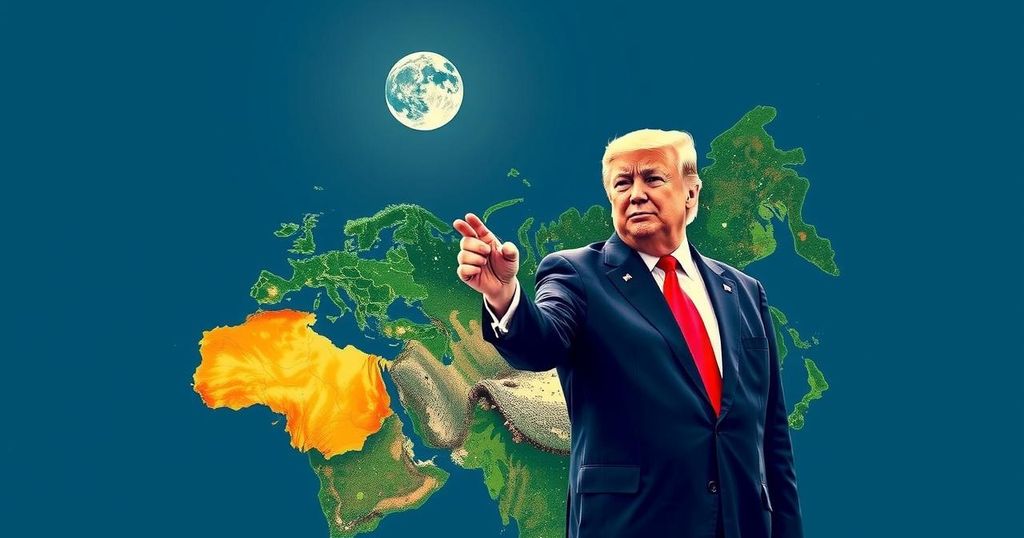As Trump Returns to Power, China Aims for Climate Leadership at COP29

With Donald Trump expected to re-enter the U.S. presidency, China is leveraging this opportunity to take a leadership role in global climate discussions at COP29. The country has focused on presenting a more cooperative stance, revealing its climate finance commitments while resisting donor classification. Analysts believe Trump’s scepticism towards international climate cooperation may enable China to position itself as a more responsible global power, especially regarding clean energy initiatives.
As the United States approaches a change in leadership, particularly with Donald Trump expected to re-enter the White House, China is strategically positioning itself as a prominent figure in global climate diplomacy. During the COP29 climate talks held in Baku, Azerbaijan, China has adopted a notably more conciliatory and cooperative approach, in stark contrast to its previous assertiveness regarding international disputes. This shift aims to portray China as a responsible global leader, especially as the U.S. may retreat from its climate commitments. China’s recent disclosures regarding its international climate finance efforts, including a reported $24.5 billion contribution since 2016, signal its ambition to lead in climate action. Yet, it firmly resists classification as a donor country, preferring to maintain its status as a developing nation which would exempt it from strict accounting requirements. Analysts suggest that by advancing its climate aid and emission reduction targets, China could enhance its credibility on the global stage. In light of Trump’s scepticism towards climate cooperation, analysts believe his re-election could reduce U.S. influence in global climate negotiations, thereby allowing China to assert its leadership more prominently. Despite tension between the U.S. and China likely increasing, some experts remain optimistic that negotiations may become more productive when the U.S. adopts a hardline stance on climate issues. Ultimately, China’s adept maneuvering in Baku reflects its desire to emerge as a climate leader during uncertain geopolitical times. While wealthy nations are urged to increase their financial support for poorer countries affected by climate change, the dynamics within the negotiations are complex. The challenge remains for China to offer transparent commitments while navigating its own economic interests. Observers note that despite potential contention, China’s prioritization of climate action is driven by its domestic environmental struggles, reinforcing its role in the international arena as a leader on clean energy and climate efforts.
The article addresses the evolving dynamics of global climate diplomacy amidst changing U.S. leadership. As Donald Trump anticipates re-election, concerns exist that the U.S. may withdraw from its climate commitments, which creates an opening for China to fill the leadership void. China, as the largest emitter of greenhouse gases but also a leader in the clean energy sector, seeks to promote itself as a responsible global power while also addressing its own pressing environmental challenges. The context of COP29 highlights these shifts as nations strive to formulate effective climate policies in collaboration that align with their domestic and global aspirations.
In summary, as Donald Trump is poised to return to the White House, China capitalizes on this political shift to position itself as a leader in international climate efforts. With its substantial investments in climate finance and clean energy, China is keen to enhance its role within global negotiations, despite the complexities of its status as a developing country. The geopolitical landscape suggests potential turbulence, yet also presents opportunities for China to define a new narrative in climate leadership.
Original Source: www.france24.com






